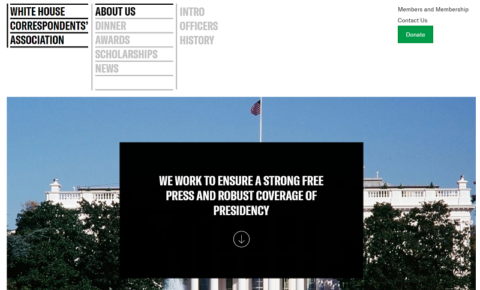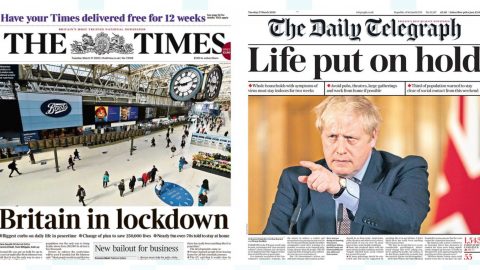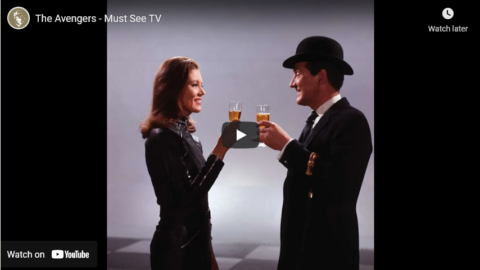What is the point of a First Ministers Conference?
There is no actual necessity for them, you understand. The federal and provincial governments are quite able to function within their respective jurisdictions without their leaders dashing off across the country at regular intervals to quiver their jowls at each other. The first such meeting was not held until 1906. Just 10 more “dominion-provincial conferences” occurred over the next 40 years. Not until the 1950s did they become the semi-annual affairs we know today. That this was also when the TV cameras arrived is possibly not coincidental.
If there were actual business to transact, it could just as easily be arranged by subordinates, or over the phone, or via video-conference. Or if an issue were so thorny that it genuinely required a fleshly first-ministerial encounter, the prime minister could always meet bilaterally with the premier or premiers involved, as Stephen Harper did.
But a full-on, capital-F First Ministers Conference, official cars, flag-backed lecterns and all? There is invariably but one purpose to these: for the 10 premiers to corner and harass the prime minister, using the imbalance in their numbers to depict the feds as the outlier. Sometimes this is in furtherance of the premiers’ perennial campaign for more federal cash. Sometimes, as in the current exercise, the point seems to be conflict for conflict’s sake. But always — always — it is theatre.
Only it is theatre of a peculiar kind: with the curtains drawn and the sound down, the audience being instead entertained by periodic reports from agents for each of the actors about who said what. Thus the breathless dispatches from reporters orbiting the conference — they are kept well away from the actual meeting room — every line of it originating from sources, federal or provincial, with a professional interest in puffing one leader or the other.
Andrew Coyne, “A semi-annual opportunity for premiers to strut and preen and accomplish nothing”, National Post, 2018-12-07.
August 20, 2021
QotD: First Ministers Conferences
July 27, 2021
Kurt Schlicter on the gimps of the White House press corps
At TownHall, Kurt Schlicter expresses his disregard for the media who are supposed to be covering the White House and are voluntarily muzzling themselves and acting more like the ministry of propaganda than the free press. At least in Canada, they have the excuse that they’re paid prostitutes for whatever their federal pimps want them to say … in the United States that’s not (yet) the case:
You gotta love the lib reporters meekly accepting the delicious iron discipline of black-clad Mistress Psaki as she demands “Why do you need to have that information?” when asked about the number of infectos in the petri dish that is the * White House. The only way that kink-fest could have been more on the nose with regard to who our esteemed journalismers actually are is if her severe black outfit was vinyl. Apparently, getting flogged by the Democrat dominatrix turns their collective crank because they just took it. They always just take it. And our Fourth Estate will eagerly beg for more.
Now, it’s not even the gross double standard at play here that’s significant – imagine the fussy fury of the lib-simps if one of Trump’s vanilla spokespeople publicly abused them like that. We’ve learned that the lib-press is immune to shame, at least the kind that comes from having their rank hypocrisy exposed by conservatives. No, it’s that when their Dem domme cracks the whip, they just take it, meekly, obediently, like the groveling submissives they are.
Someday, someone will look back on this pathetic abdication of the media’s dignity and write a history of how the ink-stained wretches of the past became the craven conformists of today, and how now they revel in their own subjugation. Call it 50 Shades of the Gray Lady; when you read the hot scene in the forbidden White House press playroom at page 247, you’ll want to draw a warm bubble bath, light a lavender-scented candle, and pour yourself a goblet of Trader Joe’s screw-top chardonnay. Grrrrrrrr.
Imagine being these people. You can’t? Okay, then take a shot of Dickel Rye and try again to imagine being these people. They all grew up wanting to be the crusading Woodward and/or Bernstein – who themselves were less ace reporters than eager conduits for a disgruntled bureaucrat hack who exploited the callow correspondents to settle his personal scores – and instead they grew up to be the Gimp in the less interesting version of Pulp Fiction that is the DC milieu.
They aren’t breaking stories. They aren’t uncovering wrongdoing. They certainly are not comforting the afflicted or afflicting the comfortable. They are the ruling caste’s janitors. They are drones, thralls to their elite masters, marching in grim conformity in step to the official narrative, never complaining, never questioning, never dissenting. These are licensed, registered, regime journalists.
July 25, 2021
QotD: The Two Rules of Modern Journalism
RULE # 1: Because journalists are required to be open-minded, exercise independence of spirit, and display a healthy amount of skepticism, the words and deeds of politicians, leaders, and the powerful — as well as those of regular citizens being interviewed — must constantly be questioned, second-guessed, doubted, fact-checked, challenged, and, more often than not, interrupted (more or less politely).
RULE # 2: Rule # 1 only applies to Republicans.
(And to anybody leaning conservative.)
For Democrats and leftists, the typical query is more along the lines of “pray enlighten us to your glorious plans for fundamentally transforming the United States of America (we will be quiet now).” (Close second: “kindly tell us how much people have suffered, and are still suffering, in this dreadful country of ours.”)
Erik, “The Two Rules of Modern Journalism”, ¡No Pasarán!, 2021-04-16.
July 16, 2021
July 13, 2021
QotD: Girls and witchcraft
Like many Canadian teenage girls who came of age in the 1990s, I grew up on 2% milk, dime-store candy and tales of the occult. I was slightly too old for the Harry Potter craze, falling instead for Buffy the Vampire Slayer and films such as The Craft. One of my special favorites was Sabrina the Teenage Witch, an ABC series about a magical American teenager who lives with her 500-year-old aunts and a talking cat.
Witchcraft fascinated me. When girls reach that liminal time between child and woman, our bodies transform — and, with them, our sense of control. It’s a strange thing to go from being cosseted and encouraged to desired and despised. It feels a little like dark magic — though not the kind one can control. Unless, of course, you are a witch.
Like the magical artifacts Harry Potter is always stumbling upon, witchcraft offers power. It promises a way to re-shape the world to a girl’s advantage, to gain freedom from parents, to toy with boys’ hearts while numbing one’s own. Male magic fantasies tend to be centred around power and combat — with lightning perpetually emanating from wands and fingertips into the chests of adversaries blown backwards. However, the sort of witchcraft that interests me is more subtle, and sometimes passes unseen. (In real life, such powers originate in sex — but it takes time for a girl to learn that.) It’s no coincidence that the world of witchcraft becomes a dark mirror of our society, reflecting the dispositions and paranoias of our times. When times are good, the witch is portrayed as a benign, bubbly figure; when they are not, the witch becomes malevolent and dark, in line with medieval lore.
Jen Gerson, “Sabrina the Woke Witch is a Disgrace to Baphomet”, Quillette, 2018-11-26.
June 17, 2021
June 6, 2021
June 2, 2021
Media Fearmongering
Laura Dodsworth on how the BBC and other British media outlets turned all the dials to 11 to ramp up fear over the spread of the Wuhan Coronavirus:
The media have served us a cornucopia of frightening articles and news items about Covid-19 in 2020 and 2021. While writing my new book, A State of Fear: How the UK Government Weaponised Fear During the Covid-19 Pandemic, I encountered a panoply of doom-mongering headlines. These were an indication of the significant role the media have played in creating our state of fear.
Of course, news media should not shy away from reporting frightening news during a pandemic. They should make us aware of the numbers of deaths, the policies being implemented to tackle the pandemic and the latest scientific developments. But during Covid, the media went beyond reporting on the pandemic. Instead, they appeared beholden to the old commercial imperatives, “If it scares, it airs”, and “If it bleeds, it leads”. It seems fear does sell.
The anxious, frightened climate this has helped to create has been suffocating. Death tolls were constantly brandished without the context of how many people die every day in the UK, and hospital admissions were reported while recoveries were not. As a result, Covid often appeared as a death sentence, an illness you did not recover from – even though it was known from the outset that Covid was a mild illness for the majority of people.
Given the wall-to-wall doom, it is therefore no surprise that the British were one of the most frightened populations in the world. Various studies showed that we were more concerned than other countries about the spread of Covid and less confident in the ability of our government to deal with it. One survey in July 2020 showed that the British public thought between six and seven per cent of the population had died from Covid – which was around 100 times the actual death rate at the time. Indeed, if six or seven per cent of Brits had died from Covid, that would have amounted to about 4,500,000 bodies – we’d have noticed, don’t you think?
While researching A State of Fear, I interviewed members of the general public about how they were impacted by the “campaign of fear” during the epidemic. Many talked of how the media had elevated their alarm.
“There wasn’t much to do”, Darren told me, “so we’d watch TV and we saw programmes about disinfecting your shopping when it arrives, and having a safezone in the kitchen. The nightly bulletins on the TV about death tolls, the big graphs with huge spikes on them, came at us ‘boom, boom, boom!’. It was a constant barrage of doom and gloom. My fear of the virus went through the roof.”
Sarah told me she had to stop watching the BBC. As her daughter put it, “If you just watched or listened to the BBC every day, what hope would you have had?”. Jane, meanwhile, described the “gruesome headlines” that came at her “thick and fast”.
The fearmongering about Covid began even before the pandemic hit the UK. We were primed by videos from Wuhan in China, which were then widely circulated by UK-based media outlets. These painted an apocalyptic picture, featuring collapsed citizens, medics in Hazmat suits, concerned bystanders and a city grinding to a halt. In one memorable video, which went viral, so to speak, a woman fell, stiff as a board, flat on her face, on a pavement. The split second where she falters is a giveaway – this was a set-up. If the rest of the world had Covid, China had “Stunt Covid”.
June 1, 2021
The Avengers – Must See TV
May 30, 2021
New frontiers in cultural appropriation
John McWhorter considers the notion that white people shouldn’t be allowed to use “black” words and phrases because it’s a form of cultural appropriation and therefore another aspect of white supremacy:
A little while ago, a Saturday Night Live skit depicted a multiracial group of teens communicating in what was depicted as “Gen Z slang”, with the doctor they were talking with having to “translate” his thoughts into it to communicate with them.
A lot of people didn’t like it, because the slang in question was mostly of Black English origin. The complaint is that the skit was denying the black roots of these terms, and instead ascribing them to Americans in general – i.e. (shudder) white persons. As in, yes – the problem was cultural appropriation.
As I write, there are still people grousing on social media in the wake of that skit about whites “stealing” black language, with a leitmotif being that we should apply our N-word taboo more widely. To wit, many propose that whites should not be allowed to use Black English terms because they are “ours”. Many who haven’t outright proposed this give the notion Likes, which suggests that a considerable group of people – and from what I can see, quite a few of them are white – concur with this line of reasoning.
Let’s break this down. To do so we must understand the sorts of terms in question. The SNL skit included, among others, yo, bestie, vibes, feels for feelings, salty for irritated, bro / bruh and no cap for “I’m not kidding” (as in, these are actual whole gold teeth, not golden caps on teeth).
Is there a case that you should only use these terms if you’re black, or that if you use them as a white person you should “do the work” of thinking hard about whether or not it is problematic (blasphemous)?
May 26, 2021
May 18, 2021
May 17, 2021
An older BBC dramatization on the slave trade that seems to have gone down the memory hole
At Samizdata, Niall Kilmartin wondered why the BBC hadn’t gotten around to showing a 1970s historical series through the year-and-more of the pandemic lockdowns. He doesn’t mention the name of the series, and an unusually unhelpful BBC site search didn’t turn up a name but IMDB suggests it was 1975 and the series was called The Fight Against Slavery:
Fifty years ago, the BBC screened a dramatised documentary series about the fight to abolish the slave trade. Even a year of the virus limiting new series, at a time of great BBC eagerness to talk about racism, has not made them screen it again.
– I see one reason why they have not: the series displayed sleazy white slave traders and abusive white slave owners prominently, but it also showed white people eager to end the slave trade and (much worse) black people eager to continue it. It included the king of Dahomey’s threat: “if you do not allow me to sell you my slaves, their fate will be a great deal worse” (a very brief scene of the Dahomey murder spectacle lent meaning to his remark). After abolition was voted, it showed a white slave trader assuring the Dahomans, as a drug dealer might his suppliers, “It is one thing for parliament to pass a law …”, hinting at the Royal Navy’s long and hard campaign to enforce it.
– Only recently did I spot another reason why they would not want to show it again – the scene in which a corrupt old white slave trader warns his young colleague that “it’s more than your life’s worth” to doubt the ability of their slave-selling hosts to count very accurately the quantity of trade goods being handed over in exchange, and to assess their quality knowledgeably. The traders well knew that Africans counted two plus two as four, just as they did. Any trader who imagined that black ability to add diverged enough from white to enable an attempt to short-change them had learned otherwise long before the 1780s.
– The southern Confederacy thought the same. Until its death throes, it forbade enlisting a southern black as a Confederate soldier because, as one Confederate senator put it, “If blacks can make good soldiers then our whole theory of slavery is wrong.” (Perhaps also because even southern white Democrats realised that southern black desire to fight against blacks being freed was likely to be a very minority taste.) But there was one exception. Every regiment had its regimental band, which played to set the pace at the start and end of marches, used trumpets to signal commands in battle – and fought when other duties did not supervene. From its start to its end, Confederate law said any black could enlist as bandsman, with the same pay and perquisites as a white – a very rare example of formal legal equality. (Playing music requires the ability to count time. For the woke, “dismantling the legacy of the Confederacy” apparently includes dismantling its realisation – shared by the Victorian composer Dvorak – that blacks often excelled in music so much as to overcome prejudice against black ability. Today, it’s “racist” to value instrumental skill.)
“Politically correct” has meant “actually wrong” ever since the first commissar explained to the first party comrade that it was neither socialist nor prudent to notice a factual error in the party line. “Structurally racist” is PC’s modern companion. No longer are the woke content merely to imply (“mathematics is racist”, “punctuality is racist”, “politeness is racist”) that blacks can’t count, can’t tell the time and can only behave crudely. They’re starting to say it in words of fewer syllables.
If I’d scrolled down to the comments, I’d have discovered that Natalie Solent had also dug up the name of the series:
Natalie Solent (Essex)
May 10, 2021 at 4:30 pm
Outstanding post, Niall. Was the BBC series you mentioned “The Fight Against Slavery“, written and narrated by Evan Jones? I have not seen it – given that I was ten or eleven in 1975 my parents probably thought I was too young too see it.However someone called “InternetPilgrim” has put up three videos of the series on YouTube. There is a link to Part I here, Part II here and Part III here, so I will try to remedy that lack soon.
May 11, 2021
QotD: The (disappointing) sex lives of the rich and famous
I suspect […] one of the main reasons rock stars, who really can have the super hot model, always end up cheating on her — because it’s not really her. In their minds, they became rock stars specifically to get that kind of girl … but that’s the thing: That kind of girl doesn’t exist. She’s a 2D image, heavily photoshopped. Oh, I’m sure Supermodel X really IS hot in real life, but she’s also just a person, which means she farts and snores and wakes up with bed head and all that. Plus, rock stars really do live with the equivalent of their own personal Photoshop, in the form of a small army of flunkies who make all of life’s routine frustrations go away. So it must be even more maddening to find out that the Cover Girl really does have myriad small blemishes, because, you know, she’s a real person, and not the fantasy you signed up for when you signed that big record deal.
Severian, “Junkies”, Rotten Chestnuts, 2021-01-18.
May 2, 2021
QotD: The “I don’t watch sports” bore is even more rare than the Libertarian bore
I have always believed that I am the kind of person who doesn’t like sports. I don’t like playing them, and I don’t like watching them. Despite growing up in a sports-friendly household, I don’t think I have ever watched a complete game of professional basketball. I enjoy the over-the-top production values of the Super Bowl, but not football itself. I appreciate baseball as an exercise in the generation of discrete statistical outcomes, but I can’t bring myself to feel any passion about the game. All I know about hockey is that there’s something called the icing rule, which sounds delicious.
Only about 7 percent of American adults don’t watch sports at all. That means that non-sports-watchers are, by some counts, even rarer than libertarians. What I’m trying to say is, I’m fun at parties.
Peter Suderman, “Call of Duty Is the Best Sporting Event in the World”, Reason, 2018-10-19.












